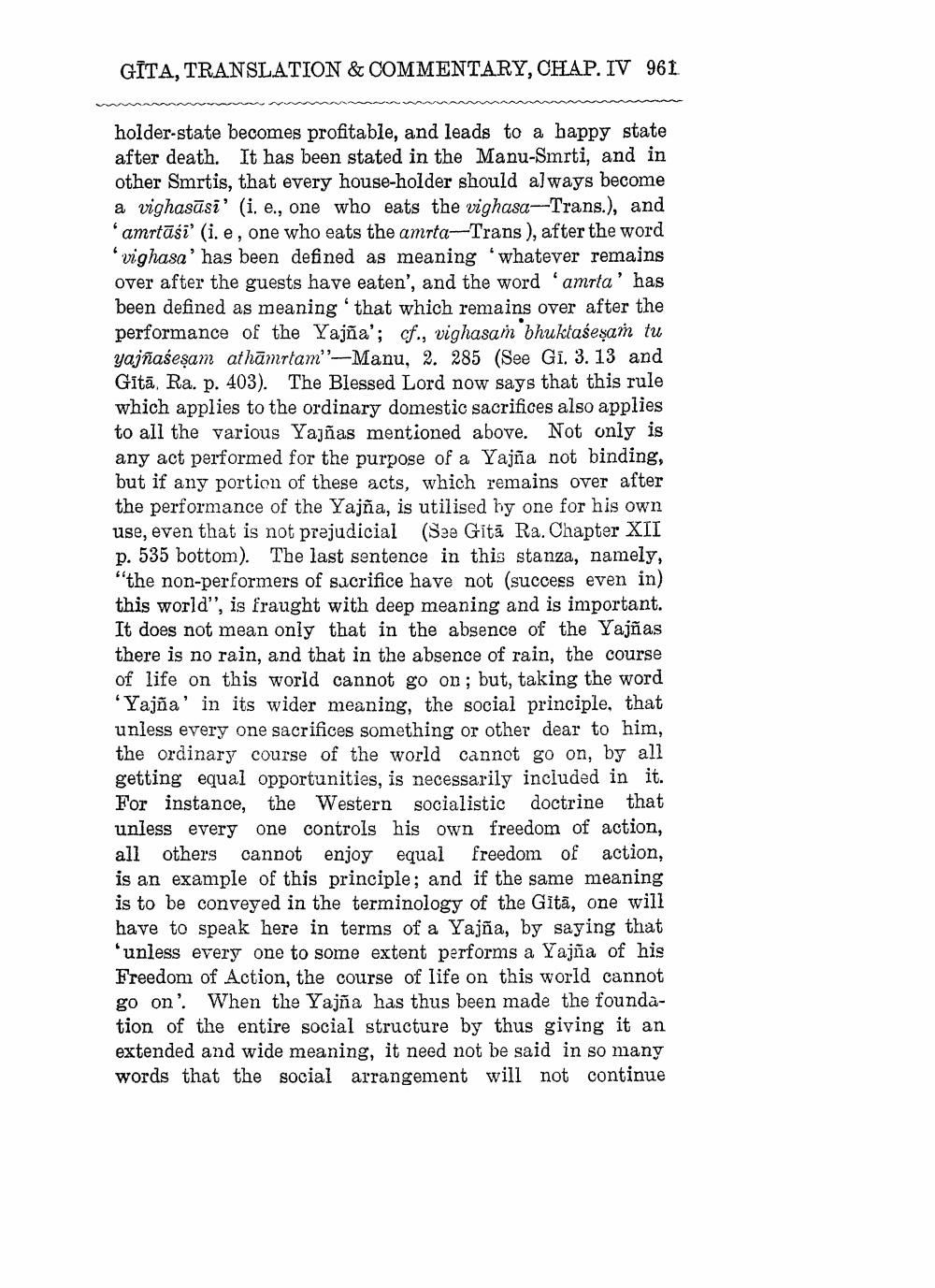________________
GĪTA, TRANSLATION & COMMENTARY, CHAP. IV 961.
holder-state becomes profitable, and leads to a happy state after death. It has been stated in the Manu-Smrti, and in other Smrtis, that every house-holder should always become a vighasāsi' (i. e., one who eats the vighasa-Trans.), and
amrtāśi' (i.e, one who eats the amrta-Trans ), after the word 'vighasa' has been defined as meaning 'whatever remains over after the guests have eaten', and the word 'amrta' has been defined as meaning that which remains over after the performance of the Yajña'; cf., vighasan bhuktasesam tu yajñaśesam athāmrtam"-Manu, 2. 285 (See Gi. 3. 13 and Gītā, Ra. p. 403). The Blessed Lord now says that this rule which applies to the ordinary domestic sacrifices also applies to all the various Yajñas mentioned above. Not only is any act performed for the purpose of a Yajna not binding, but if any portion of these acts, which remains over after the performance of the Yajña, is utilised hy one for his own use, even that is not prejudicial (Sea Gitā Ra. Chapter XII p. 535 bottom). The last sentence in this stanza, namely, "the non-performers of sacrifice have not (success even in) this world", is fraught with deep meaning and is important. It does not mean only that in the absence of the Yajñas there is no rain, and that in the absence of rain, the course of life on this world cannot go on; but, taking the word
Yajña' in its wider meaning, the social principle, that unless every one sacrifices something or other dear to him, the ordinary course of the world cannot go on, by all getting equal opportunities, is necessarily included in it. For instance, the Western socialistic doctrine that unless every one controls his own freedom of action, all others cannot enjoy equal freedom of action, is an example of this principle; and if the same meaning is to be conveyed in the terminology of the Gitā, one will have to speak here in terms of a Yajña, by saying that 'unless every one to some extent performs a Yajna of his Freedom of Action, the course of life on this world cannot go on'. When the Yajña has thus been made the foundation of the entire social structure by thus giving it an extended and wide meaning, it need not be said in so many words that the social arrangement will not continue




